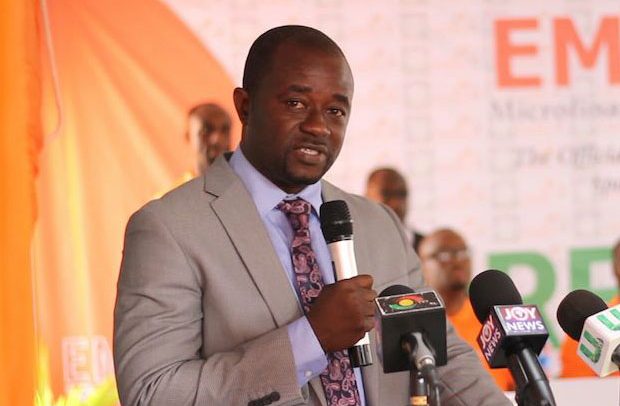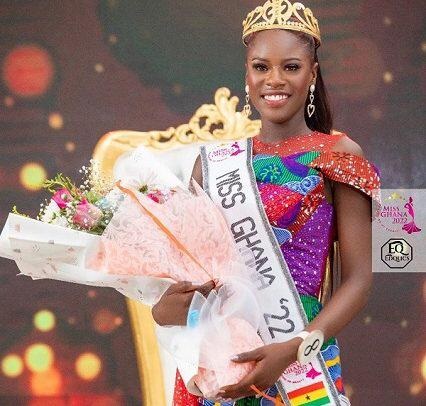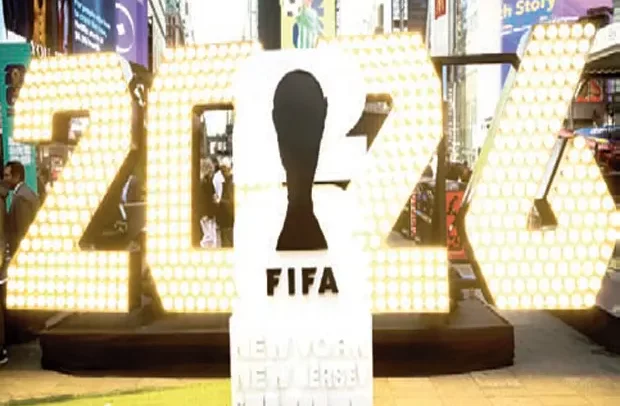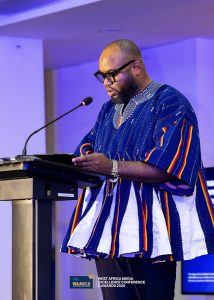
When the final whistle blew at the Accra Sports Stadium on Sunday night, jubilation swept across the nation. Ghana had defeated Comoros 1-0, thanks to a decisive strike from Mohammed Kudus , to top Group I and book their ticket to the 2026 FIFA World Cup. It was a moment of national pride, redemption, and vindication — and at the center of it all stood one man whose leadership has transformed the landscape of Ghanaian football: Kurt Edwin Simeon-Okraku, President of the Ghana Football Association (GFA). This qualification marks Ghana’s second successive World Cup under Okraku’s stewardship and their fifth overall, a feat that underscores his visionary leadership, structural reforms and relentless belief in the potential of Ghanaian football. What began as a period of doubt and disappointment following the nation’s failure to qualify for the 2025 Africa Cup of Nations (AFCON) has now become a story of resilience, renewal and redemption. After the AFCON qualification heartbreak, Ghana’s first absence from the tournament in over two decades , the GFA under Kurt Okraku’s direction undertook a deep reflection and strategic overhaul. The President did not flinch under criticism. Instead, he responded with action, restructuring the national team setup to ensure stability, technical excellence and accountability. In a bold and forward-thinking move, President Kurt Okraku and his Executive Council appointed AFCON-winning coach Winfried Schäfer as Technical Advisor to the Black Stars and promoted Desmond Ofei, the coach of the Black Satellites, to assist Otto Addo. This fusion of experience, tactical knowledge and youthful innovation brought balance and dynamism to the coaching setup and the results were immediate. He also oversaw the appointment of five seasoned professionals to a restructured Black Stars Management Committee, whose expertise and dedication proved instrumental in the team’s remarkable success. Under this revitalized technical leadership, Ghana transformed into one of Africa’s most formidable sides, recording eight wins, one draw, and just one defeat in 10 qualifying matches. Kurt Okraku’s tenure has been defined not just by results but by the systems he has built. From the Catch Them Young Refereeing Initiative and Women’s Premier League development programs, to the revitalization of the domestic league and investments in sports science and data analysis, Kurt Okraku’s administration has placed emphasis on long-term sustainability. He has consistently championed professionalism, transparency, and accountability within the football ecosystem, ensuring that Ghana’s national teams, from youth to senior level , are managed with modern efficiency and vision. The GFA’s technical reforms and talent identification structures now serve as a model for emerging football nations across Africa. The 1-0 victory over Comoros was symbolic not just for the result, but for what it represented. It showcased Ghana’s return to the world stage as a unified, ambitious footballing nation. Kudus’ goal may have sealed qualification, but it was Kurt Okraku’s strategic foresight, institutional reform and belief in process that paved the way. By finishing six points clear of second-placed Madagascar, Ghana demonstrated consistency, depth and tactical maturity. The win capped a campaign that reestablished the Black Stars as one of Africa’s elite footballing powers, and restored the nation’s faith in its football leadership. Kurt Okraku’s leadership has been one of vision, courage and conviction. He inherited a football system facing structural and reputational challenges, yet through reform, innovation and inclusive leadership, he has repositioned Ghana as a global football force. Under his guidance, Ghana has qualified for two consecutive World Cups, revitalized its domestic competitions and expanded its youth development programs, achievements that speak not only to his administrative competence but also to his passion for the game and his unwavering belief in Ghanaian excellence. As the Black Stars prepare for another journey on football’s biggest stage , the 2026 FIFA World Cup in the USA, Canada, and Mexico, one thing is clear: this is not just a story of football success. It is a story of leadership, resilience and transformation. And at its heart stands Kurt Edwin Simeon-Okraku — the man whose vision and dedication have reignited the spirit of Ghanaian football and guided a proud nation back to where it belongs: among the best in the world.
When the final whistle blew at the Accra Sports Stadium on Sunday night, jubilation swept across the nation. Ghana had defeated Comoros 1-0, thanks to a decisive strike from Mohammed Kudus , to top Group I and book their ticket to the 2026 FIFA World Cup.
It was a moment of national pride, redemption, and vindication — and at the center of it all stood one man whose leadership has transformed the landscape of Ghanaian football: Kurt Edwin Simeon-Okraku, President of the Ghana Football Association (GFA).
This qualification marks Ghana’s second successive World Cup under Okraku’s stewardship and their fifth overall, a feat that underscores his visionary leadership, structural reforms and relentless belief in the potential of Ghanaian football. What began as a period of doubt and disappointment following the nation’s failure to qualify for the 2025 Africa Cup of Nations (AFCON) has now become a story of resilience, renewal and redemption.
After the AFCON qualification heartbreak, Ghana’s first absence from the tournament in over two decades , the GFA under Kurt Okraku’s direction undertook a deep reflection and strategic overhaul. The President did not flinch under criticism. Instead, he responded with action, restructuring the national team setup to ensure stability, technical excellence and accountability.
In a bold and forward-thinking move, President Kurt Okraku and his Executive Council appointed AFCON-winning coach Winfried Schäfer as Technical Advisor to the Black Stars and promoted Desmond Ofei, the coach of the Black Satellites, to assist Otto Addo. This fusion of experience, tactical knowledge and youthful innovation brought balance and dynamism to the coaching setup and the results were immediate.
He also oversaw the appointment of five seasoned professionals to a restructured Black Stars Management Committee, whose expertise and dedication proved instrumental in the team’s remarkable success.
Under this revitalized technical leadership, Ghana transformed into one of Africa’s most formidable sides, recording eight wins, one draw, and just one defeat in 10 qualifying matches.
Kurt Okraku’s tenure has been defined not just by results but by the systems he has built. From the Catch Them Young Refereeing Initiative and Women’s Premier League development programs, to the revitalization of the domestic league and investments in sports science and data analysis, Kurt Okraku’s administration has placed emphasis on long-term sustainability.
He has consistently championed professionalism, transparency, and accountability within the football ecosystem, ensuring that Ghana’s national teams, from youth to senior level , are managed with modern efficiency and vision. The GFA’s technical reforms and talent identification structures now serve as a model for emerging football nations across Africa.
The 1-0 victory over Comoros was symbolic not just for the result, but for what it represented. It showcased Ghana’s return to the world stage as a unified, ambitious footballing nation. Kudus’ goal may have sealed qualification, but it was Kurt Okraku’s strategic foresight, institutional reform and belief in process that paved the way.
By finishing six points clear of second-placed Madagascar, Ghana demonstrated consistency, depth and tactical maturity. The win capped a campaign that reestablished the Black Stars as one of Africa’s elite footballing powers, and restored the nation’s faith in its football leadership.
Kurt Okraku’s leadership has been one of vision, courage and conviction. He inherited a football system facing structural and reputational challenges, yet through reform, innovation and inclusive leadership, he has repositioned Ghana as a global football force.
Under his guidance, Ghana has qualified for two consecutive World Cups, revitalized its domestic competitions and expanded its youth development programs, achievements that speak not only to his administrative competence but also to his passion for the game and his unwavering belief in Ghanaian excellence.
As the Black Stars prepare for another journey on football’s biggest stage , the 2026 FIFA World Cup in the USA, Canada, and Mexico, one thing is clear: this is not just a story of football success. It is a story of leadership, resilience and transformation.
And at its heart stands Kurt Edwin Simeon-Okraku — the man whose vision and dedication have reignited the spirit of Ghanaian football and guided a proud nation back to where it belongs: among the best in the world.
Send your news stories to [email protected] and via WhatsApp on +233 546310076.
Read Full Story











Facebook
Twitter
Pinterest
Instagram
Google+
YouTube
LinkedIn
RSS